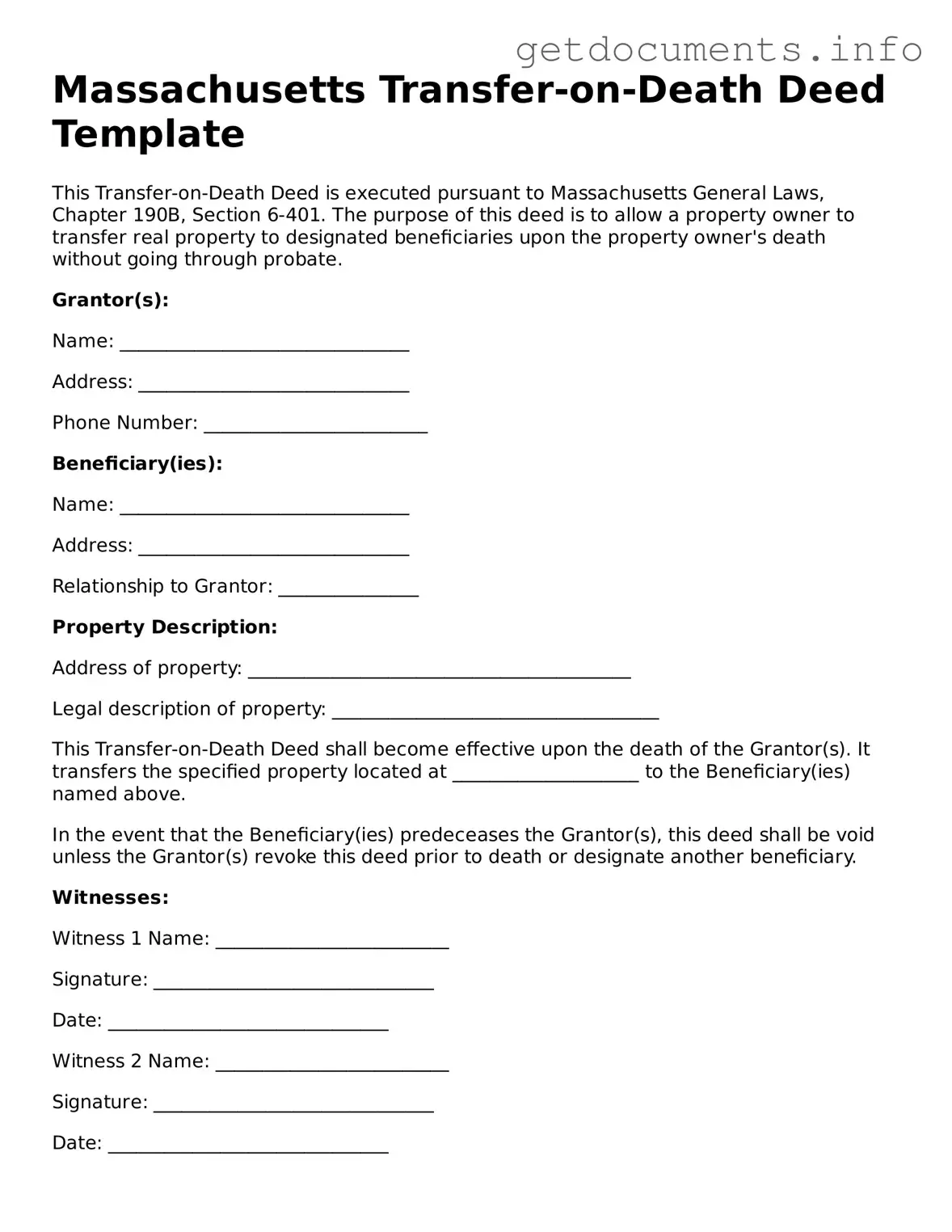Free Transfer-on-Death Deed Template for Massachusetts
The Massachusetts Transfer-on-Death Deed form allows property owners to transfer real estate to beneficiaries upon their death, avoiding probate. This simple yet effective tool ensures that your wishes are honored without the complications of court proceedings. Ready to secure your property transfer? Fill out the form by clicking the button below.
Access Transfer-on-Death Deed Editor

Free Transfer-on-Death Deed Template for Massachusetts
Access Transfer-on-Death Deed Editor
Got places to be? Complete the form fast
Fill out Transfer-on-Death Deed online and avoid printing or scanning.
Access Transfer-on-Death Deed Editor
or
⇩ PDF File
